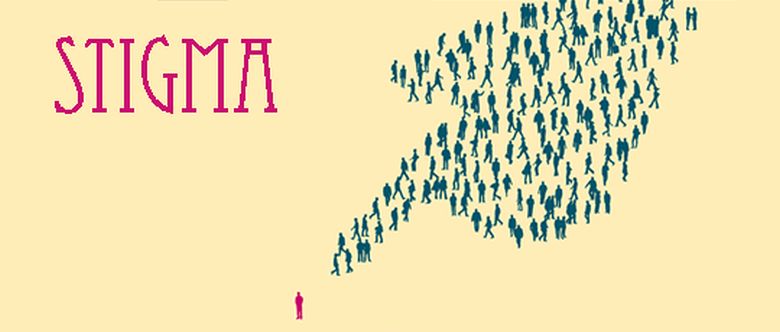What does mental illness means to you? Dear readers, please keep those answers in mind until the end of the article. I will tell you a story which occurred to people who are very close to me. Our story begins with a small family composed of a middle-classed man and woman. The family dreamed of a comfortable and stable life. Days passed by and the family welcomed their first born. Their joy was neither describable nor easily expressed in words. The family celebrated and received congratulations from relatives and neighbors.
The child was born and he was healthy. The small baby began to grow and develop. He walked and talked and developed as a pretty much natural baby. Each event was celebrated and documented by the family; every single movement or a step from the baby was a great source of pleasure to the family.
Our child was developing rapidly and soon he was admitted to primary school. He was a smart and had rapid intuition, not facing any problem except that he was subjected to violence from his peers. His family was supportive. His parents taught him to be confident and to defend himself.
Days passed and the hero of our story was in his adolescence. In that difficult stage when people move from stage of reliability and childhood to independence and maturity. Those critical moments were encountered with many changes both physical and psychological. At this stage where a normal person suffering from changes they couldn’t understand, some unusual symptoms rose.
He saw things moving when in fact they were static. He heard voices speaking, but in fact, there was no one speaking to him. He was trying to study preparing for the Sudanese secondary school certificate exam but he was unable to study.
The family seemed to be very concerned about what is happening. Luckily there was a psychologist in the family. She suggested that these symptoms may be symptoms of mental illness. She encouraged them to visit a psychiatrist.
The family has taken this bold move because they want to know and understand what happened to their eldest son. Indeed, the family went to see a doctor and after conducting a number of medical examinations the doctor decided that the hero of our story was diagnosed with schizophrenia.
Schizophrenia is a mental illness arising with symptoms such as hallucinations, delusions, and unrest in the speech and changes in behaviour. The son was diagnosed with the disease. This was a tragic event for the family. It was not easy for them to believe it. It was a very hard time for them. The family did not accept the fact that their son is a person with mental illness. “Why my family? Why my son?” the father was thinking desperately.
The extended family had an important role at that stage. They took the initiative to support the small family. The aunts and uncles spoke to the boy and his family. Their aim was to comfort and support. They had done their best to include him and help him not to feel alone or ashamed of himself.
Slowly, the bereaved family began to accept the facts.

Image Credit: https://newcomerhealthmatters.com
At the time many people suggested that the boy had suffered from evil spirits or he was subjected to dark magic. The family began to visit Sheikhs so they can read some verses of the holy Quran. At the same time, they began the drug therapy.
He showed no positive response and medication showed no positive effect. Years passed invariably fierce and the treatment did not achieve the desired results. The family had been very frustrated yet they didn’t give up the treatment. After all those years the family consulted a new doctor. The new doctor decided that the diagnosis was schizophrenia and bipolar disorder.
Bipolar disorder is a mental illness in which the patient lives in two extremities, overwhelming joy (euphoria) and depression. In episodes of euphoria, the patient seems to have thought disorders and great joy and any unwarranted behavior may be an act of aggression. On the other hand in times of depression, the person has a sense of inferiority, loss of value and great sadness. In depressive episodes, suicide attempts may occur. Dear reader, I will tell you some of the suicide attempts that our hero tried.
On a bleak day he was feeling depressed, so he tried to end his life using a normal kitchen tool; a knife. He also tried over dosing on his medications and so many more tragic incidences.
It was a terrible event for the family. The parents and siblings were depressed for a very long period of time. They moved from one Sheikh to another. They also pursued the doctor who explained to them that the drugs merely reduce the intensity and the length of the episodes.
Do you remember that we had left him applying for the Sudanese secondary school certificate exam, but he failed. He tried again. He tried to join university, but he couldn’t keep up. He is now living with his family, and he is trying to recover and heal.
What you have just read is the story of my eldest brother. The family is my family.
You might be asking “how having a mentally ill person in the family affected my growth?”. You might be asking if I’m angry with him? Do I feel ashamed or embarrassed because of him? Well. No I don’t. To be honest, when I was younger I hated him. I saw him as an aggressive person who wants to hurt my father and my siblings. I still remember those days that I cried because of him. I still remember the days I prayed to God asking him to take his soul and let us live happily. I didn’t understand why he has this illness. Why is he aggressive? Did he lie to us when he claimed to hear voices and see things that don’t exist? Sometimes I wondered why not admit him to a mental health clinic. I was too young to understand all those things happening to him.
I grew up a little bit and I started to understand, it was a time when I felt very curious to know what happened to him. I remember that I was thinking of studying psychology to understand the nature of the disease. I also remember avoiding talking about him with my friends.
Now I’m studying medicine and I completely understand what happened to him. Now I know how this all happened. Now I feel empathetic towards my parents and siblings.
It took some courage on my part to write this article after speaking at Let’s talk Sudan, organized by the Public Health Office in the Medical students’ international network of Sudan MedSIN-SUDAN. In the event, I talked about my experience and how families deal with mental illness. I will write a separate article to feature Let Us Talk Sudan initiative in term of its goals and accomplishments. By the end of my talk, I was more than satisfied because I communicated my thoughts and feelings and I am so glad that my story has inspired other people to do the same. I was pleased to listen to my friends who have similar cases in their homes. The talk and the article are more than satisfactory experiences for me.
In the beginning, I asked what mental illness means for you. I hope that my article helped you find an answer.
My message to you is that mental illness is not shameful. It is an illness with diagnosis and treatment. Persons with mental illnesses do not need compassion and empathy, instead they need to be understood and engaged.
We are all at risk of developing a mental illness with personal variations. My message here is to educate yourself and surroundings about mental illnesses; mental health is indivisible from public health. I hope that my article was eye-opening to you. I encourage you all to take the first step and educate yourself on mental health and mental illness.
